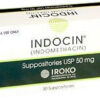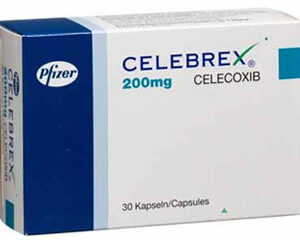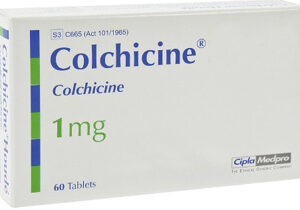Indocin is a nonsteroidal anti-inflammatory drug (NSAID) commonly prescribed for the treatment of pain, inflammation, and stiffness caused by various conditions. The active ingredient in Indocin is indomethacin, which belongs to the class of medications known as COX-1 and COX-2 inhibitors. It works by reducing the production of certain chemicals in the body that cause pain and inflammation.
Indocin comes in oral capsule and liquid suspension forms and is available in different strengths. It is typically taken two or three times a day with food or milk to minimize the risk of stomach upset. The dosage and duration of treatment may vary depending on the specific condition being treated and individual patient factors.
What to Avoid When Taking Indocin
Before starting Indocin, it is important to discuss any existing medical conditions, allergies, and medications with your healthcare provider. Indocin should be avoided in the following situations:
- Allergy to indomethacin or any other NSAIDs, such as aspirin
- A history of asthma, urticaria, or other allergic reactions after taking NSAIDs
- Active or history of stomach ulcers or bleeding
- Severe liver or kidney disease
- History of heart problems, high blood pressure, or stroke
- Pregnancy, especially during the third trimester
- History of nasal polyps
Managing Side Effects
As with any medication, Indocin can cause side effects. Common side effects may include:
- Nausea or stomach discomfort
- Headache or dizziness
- Diarrhea or constipation
- Heartburn or indigestion
- Increased blood pressure
If any of these side effects persist or worsen, it is important to notify your healthcare provider. Some side effects, such as severe stomach pain, chest pain, shortness of breath, or signs of an allergic reaction, require immediate medical attention.
How to Take It
Indocin should be taken exactly as prescribed by your healthcare provider. It is recommended to take it with food or milk to minimize stomach upset. If you miss a dose, take it as soon as you remember. However, if it is almost time for your next scheduled dose, skip the missed dose and continue with your regular dosing schedule. Do not take a double dose to make up for a missed one.
In the case of an overdose, seek immediate medical attention. Overdose symptoms may include nausea, vomiting, stomach pain, drowsiness, and rarely, seizures. It is important to follow the prescribed dosage and not exceed the recommended amount.
Indocin and Concomitant Drugs
Indocin may interact with certain medications, potentially affecting their effectiveness or increasing the risk of side effects. Inform your healthcare provider about all the medicines you are taking, including prescription, over-the-counter, and herbal products.
Some examples of drugs that may interact with Indocin include:
| Drug | Type of Interaction |
|---|---|
| Anticoagulants (e.g., warfarin) | Increased risk of bleeding |
| Diuretics (e.g., furosemide) | Reduced effectiveness of the diuretic |
| ACE inhibitors (e.g., lisinopril) | Potential decrease in kidney function |
| Methotrexate | Increased risk of methotrexate toxicity |
| Aspirin | Increased risk of gastrointestinal bleeding |
Ask and Answer
-
Q: Can Indocin be taken during pregnancy?
A: Indocin should generally be avoided, especially in the third trimester of pregnancy, as it may harm the unborn baby. -
Q: Can Indocin be addictive?
A: No, Indocin is not addictive. However, it should be used only as prescribed and for the recommended duration. -
Q: Can Indocin be used to treat migraines?
A: Yes, Indocin may be prescribed for the treatment of migraines or headache relief. However, it is important to follow your doctor’s instructions. -
Q: Can Indocin be taken with food?
A: Yes, Indocin is usually taken with food or milk to reduce the risk of stomach upset. -
Q: Is Indocin safe for children?
A: Indocin may be used in children for specific conditions, but the dosage and usage should be determined by a healthcare professional.





Reviews
There are no reviews yet.